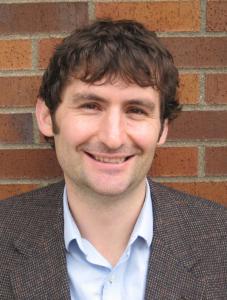
Abstract
Replacing fossil energy with renewables requires improved technology for energy storage.
I will first present our work on understanding catalysts for the oxygen evolution reaction (OER) which limit the efficiency of H2production through water electrolysis, a route to large-scale energy storage. We found Ni-Fe oxyhydroxides are the fastest known water oxidation catalysts under basic conditions when compared to others using a quantitative electrochemical-microbalance approach.In-situ electrical, photoelectron spectroscopy, x-ray diffraction, and electrochemical analyses on Ni1–xFexOOH films show that the reaction mechanism relies on the local electronic structure of a Ni-O(H)-Fe active site. Experiments with rigorous exclusion of Fe electrolyte impurities reveal that, contrary to common belief, pure NiOOH is a poor OER catalyst. FeOOH was found to be a poor electrical conductor, explaining its low “apparent” OER activity. Measurements on Co1–xFexOOH support the hypothesis that NiOOH and CoOOH provide a conductive host for the Fe-related active sites. In sum, these results establish a new activity trend for OER catalysts, opposite to previous ones, that informs catalyst design.
I will then present collaborative work on aqueous electrochemical capacitors, which are potentially safer and less expensive than non-aqueous ones, but have low specific energy. We replace the commonly used inert electrolyte with redox-active aq. electrolyte to combine faradaic and capacitive energy storage and dramatically enhance the specific energy. Detailed electrochemical measurements illustrate the operational principles and allow for the design of a Br-/viologen electrolyte and devices with excellent specific energy of 15 W hr kg-1, >1000 cycles with no fade, and low self-discharge over 6 hr.
Biography
Shannon Boettcher is currently an Assistant Professor in Chemistry at the University of Oregon. His research interests center on developing materials for solar energy conversion and storage. Core research efforts focus on the synthesis and study of heterogeneous electrocatalysts with precise molecular and nanoscale structures, the development of alternative deposition routes for high-performance semiconductors films for photovoltaics and macro-electronics, and on understanding electronic interfaces between semiconductors and electrocatalysts in oxygen and hydrogen evolving photoelectrodes.
Boettcher received his B.A. in Chemistry at the University of Oregon in 2003 where he was a Barry M. Goldwater Scholar. He received his Ph.D. in Inorganic Chemistry with Galen Stucky at UC Santa Barbara in 2008 where he was an NSF Graduate Research and UC Chancellor's Fellow. As a Kavli Nanoscience Institute Prize Postdoctoral Scholar, he studied three-dimensional Si electrode structures at the California Institute of Technology working with Nathan Lewis and Harry Atwater. In 2010, he joined the Department of Chemistry at the University of Oregon. In 2011 he was named one of 18 DuPont Young Professors worldwide and in 2014 a Cottrell Scholar.